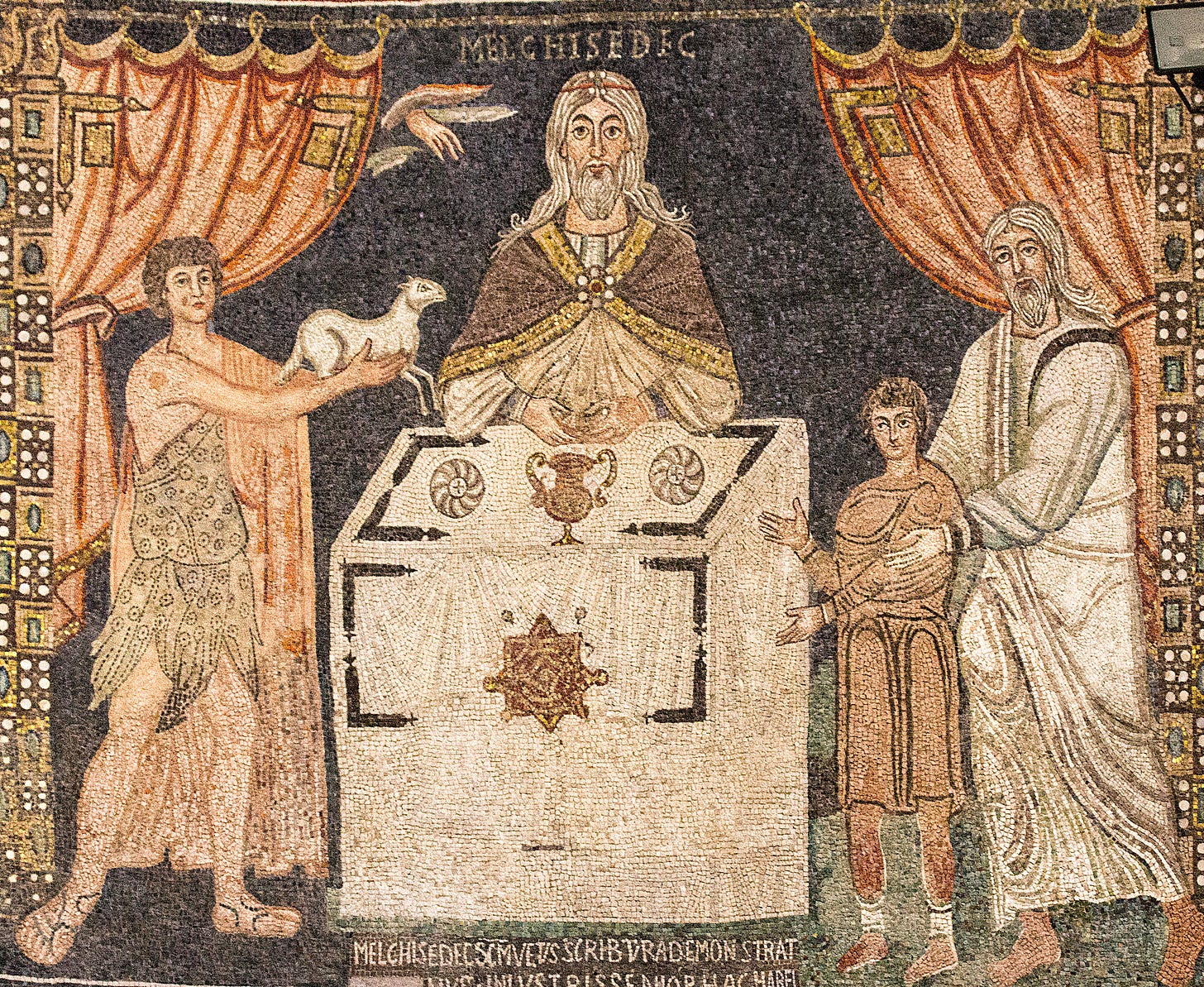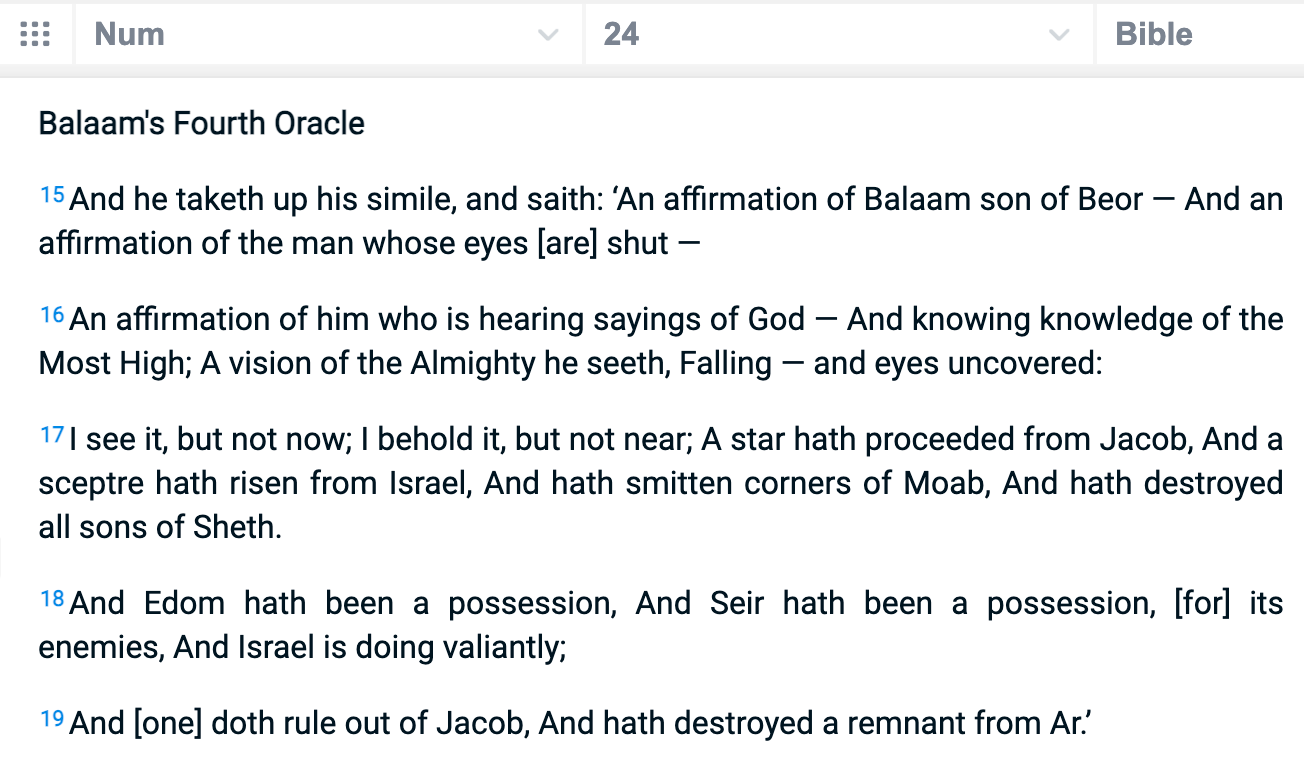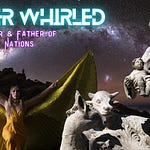Reverend Robert Taylor has the etymology of Melchisedek as King of Righteousness (Molochi + Tseduk). He wrote (Astro. Lect. p. 224), “By thy high title, Cohen-El-Elion (El Eon—God, the Being, or Eon: hence Lion: hence the Greeks made κυων, which is kyon, Dog.), priest of the most high God. Βασιλευ Ειρηνης (Basileu Eirenes) King of Peace! ἀπάτωρ, ἀμήτωρ, ἀγενεαλόγητος (apator, ametor, agenealogetos), without father, without mother, without descent, having neither beginning of days nor end of life, but made like unto the Son of God ‘a priest to perpetuity!’
The Lord hath sworn, and he will not repent: Thou art a priest for ever after the order of Melchisedec.—Psalm 4
Melchisedek is made like unto the Son of God, which is the eternal priest known as the Sun of God. Keep in mind that Hebrews is an epistle to those who’ve passed over the Hebraic degrees of initiation into the masonic priesthood.
For this Melchisedek, king of Salem, priest of God Most High, who did meet Abraham turning back from the smiting of the kings, and did bless him, to whom also a tenth of all did Abraham divide, (first, indeed, being interpreted, ‘King of righteousness,’ and then also, King of Salem, which is, King of Peace,) without father, without mother, without genealogy, having neither beginning of days nor end of life, and being made like to the Son of God, doth remain a priest continually.—Hebrews 7:1-3
Βασιλευ Ειρηνης (Basileu Eirenes) King of Peace! Ειρηνης is basically the name of Irene, and does signify peacemaking. This sounds like Éire, the name for Ireland, allegedly called Ἰέρνη (Yair-knee) by Pytheas of Massalia, which I guess became Hibernia. But when typed into Google translate, which isn’t super reliable, Ἰέρνη returns the meaning of Winter. But what if Ireland is named after peace as well: the Peaceful Land?
There are several times that Melchisedek in relationship to the word age, which means something to those familiar with determining the Age, or Aeon, regarding astrology, as well as the effects of precession of the equinoxes and the replacing of the pole star according to Egyptologists and the like, and why that is significant for navigators and farmers.
‘for He doth testify — ‘Thou [art] a priest — to the age, according to the order of Melchisedek;’
Again, ‘And inasmuch as [it is] not apart from oath, (for those indeed apart from oath are become priests, and he with an oath through Him who is saying unto him, ‘The Lord sware, and will not repent, Thou [art] a priest — to the age, according to the order of Melchisedek;’)
‘by so much of a better covenant hath Jesus become surety,
‘and those indeed are many who have become priests, because by death they are hindered from remaining; and he, because of his remaining — to the age, hath the priesthood not transient, whence also he is able to save to the very end, those coming through him unto God — ever living to make intercession for them.
‘For such a chief priest did become us — kind, harmless, undefiled, separate from the sinners, and become higher than the heavens, who hath no necessity daily, as the chief priests, first for his own sins to offer up sacrifice, then for those of the people; for this he did once, having offered up himself; for the law doth appoint men chief priests, having infirmity, but the word of the oath that [is] after the law [appointeth] the Son — to the age having been perfected.’
‘I adjure thee, by the living God, that thou tell us whether thou be the Christ, the Son of God?’—Matthew 26:63
Remember, Jesus dies and Christ rises, regarding the masonic astrotheological story of the sun. Now consider what followed the above passage. “Jesus saith to him, ‘Thou hast said; nevertheless I say to you, hereafter ye shall see the Son of Man sitting on the right hand of the power, and coming upon the clouds, of the heaven.’
“Then the chief priest rent his garments, saying, — ‘He hath spoken evil; what need have we yet of witnesses? lo, now ye heard his evil speaking; what think ye?’ and they answering said, ‘He is worthy of death.’”
Taylor continued (Ib. p. 225), “Of all certainties, nothing can be more certain than that whatever respect be due to the authority of the Book of Genesis (which is a subsequent consideration), this Melchisedec is, in the 14th chapter of that book, introduced as real a personage as Abraham. The author of that book supposes him to be a personage with whom his readers could hardly be unacquainted, and of whom it was enough to say that he was King of Salem, that he brought forth bread and wine, and he was priest of the Most High God. And he blessed Abraham, and said: Blessed be Abraham of the Most High God.
“Who then is the Most High God?”
Taylor’s question is answered in the 22nd verse of that passage: Jehovah, God Most High, possessing heaven and earth. Melchizedek, King of Salem, brought out bread and wine. These are characteristics of the sun. Yet, it is an example of attributing sun-god characteristics to other luminaries, either to confuse the uninitiated or to recycle old names.
He wrote (Ib. p. 226.), “That extraordinary epithet, the Most High God, first occurs in this enigmatical passage, as also the term priest, and again occurs not till, in like manner, it is found in the mouth of an alien, a stranger, and even an enemy to the race of Israel. ‘Balam, the son of Beor, hath said, and the man whose eyes are open hath said, He hath said, which heard the words of God, and knows the knowledge of the Most High, I shall see him, but not now; I shall behold him, but not nigh: there shall come a star out of Jacob, and a Sceptre shall rise out of Israel, which shall smite the corners of Moab.’
Jacob is literally the sun-serpent or serpent sun (Iac-Aub/Ob). The Sceptre shall rise out of Kronos (time; Israel), which when looking at how the cosmos move, the Sceptre could be the line from the observer to the pole, which would form an angle of elevation between the observer, the pole star, and the horizon. This is crucial to navigation and measuring the earth. Sheth is philologically Set, the dying sun, the sun of the west, of autumn. The corners of Moab, should it indicate the year, or the pole, through which the rivers of equinoxes and solstices cross, would be divided by that Scepter, an illusion created by the perceived motion of the sun, moon, planets, and the stars. Keep in mind Ar is both a river in Hebrew, as well as the root of lion, which is Ari, and is a symbol of the sun. ‘And one doth rule out of Jacob, And hath destroyed a remnant from Ar.’ The God On, another name for the sun in Greek, is probably why God is called the One, and why he is referred to as the Alone One, Solus, and why Jehovah seems to have an obsession with being the only God, the most high, all the while implying there is more than one God, for if there weren’t there would be no need to command that thou shalt have no other God before him.
Moab (Muav)
The etymology of Moab is disputed and uncertain. Ab indicates father. מואב (Muav) is Μωάβ in Greek, which is why I transliterate the bet as a vet and write it Muav. If we look to the east, Mu could mean without, or not having, thus Muab, or could signify without father, which is how Melchizedek is described.
What could be an enemy to the race of Kronos (time; Israel)? I could ask, what is the enemy of the sky clock mapped out by the formation of the stars? I’d submit it is the light of this world, the Prince of Peace, the King of Righteousness and Judgment, the sun. Taylor then makes my case for me using the Sanchoniathon, although I do not believe it to be authentic. He wrote (Ib. p. 227.), “In the curious fragment of Sanchoniathon, a Phœnician historian, who flourished before the Trojan war, or at least 1300 years before our era, whose text has been translated out of the Phœnician into Greek, by Philo Biblius, and preserved by Eusebius, we learn that this Elion, this Hypsistos, this Most High God, was a certain man, who, with his wife Berouth (this looks like berith, a covenant), dwelt near Buibel, Byblos, in Phœnicia, and begat a son named Adam, because he was formed out of the earth, and that this father of Abraham, this Most High God, was killed by wild beasts. (This is similar to the other sun gods being rent to pieces.) This hieroglyphical language evidently points to the Phœnician astrology; in which the Sun, literally the Most High, is allegorized under the image of man, and the wild beasts which slay him are the Zodiacal animals, more especially the wild boar, under whose ascendancy the Sun seems annually to expire in the Winter, as he revives the Spring. And ‘the knowledge of the Most High,’ which formed the great matter of boast to the prophet Balaam, and gained him the credit of supernatural wisdom, was nothing more than his skill in the science of astronomy, and of the laws by which the highest of the heavenly bodies regulates the succession of the seasons and the motions of the whole planetary system.
“But whatever sense be given to that manifestly astronomical term, the Most High God, nothing more obvious than that this Melchisedec, priest of the Most High God, appears as a sort of personage for whom the author of the Book of Genesis challenges far higher respect than for the Patriarch Abraham, and assumes that his readers could have no need of more particular information.
“A similar abruptness characterizes the introduction of this mysterious personage, in the 110th Psalm: ‘The Lord said unto my Lord (or Jehovah said unto Adonis), Sit thou on my right hand until I make thine enemies thy footstool.’ On which mysterious passage, the Jesus of Mathew xxii. 42. assuming that Adonis and Christ were one and the same person, enigmatically proves that Christ was not, and could not, have been in any sense the son of David. ‘If David then called him Lord, how is he his son?’ is the challenge of the speaker in the gospel, upon those words: ‘And no man was able to answer him a word, neither durst any man from that day forth ask him any more questions.’
‘The Lord shall send the rod of thy strength out of Zion. Rule thou in the midst of thine enemies.’—Bible Version.
‘In the day of thy power shall the people offer thee free-will offerings with an holy worship. The dew of thy birth is of the womb of the morning. The Lord sware and will not repent. Thou art a priest for ever, after the order of Melchisedec.’—Prayer Book Version.
For those interested in learning the system of priestcraft used by those who govern the world, as well as the cultures behind the systems, invest in the Spirit Whirled series and The Real Universal Empire.







Become a member to access the rest of this podcast and show notes as Chance and I dive into who, and what, Melchisedek is.
Listen to this episode with a 7-day free trial
Subscribe to Ancient History, Mythology, & Epic Fantasy to listen to this post and get 7 days of free access to the full post archives.


















